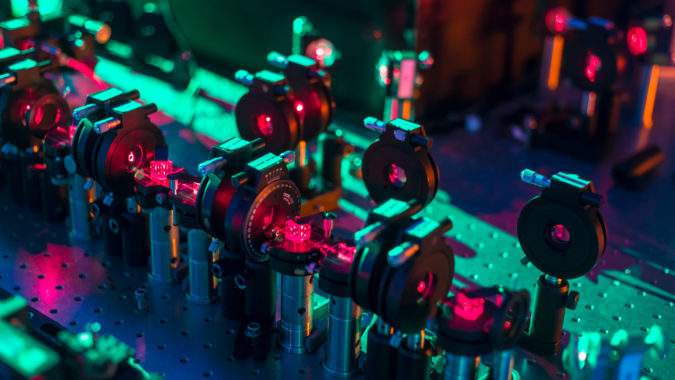In the 2018 movie Infinity War, a scene featured Dr. Strange looking into 14 million possible futures to search for a single timeline where the heroes would be victorious. Perhaps he would have had an easier time with help from a quantum computer.
A team of researchers from Griffith University’s Centre for Quantum Dynamics and Nanyang Technological University, Singapore (NTU Singapore), have constructed a prototype quantum device that can generate all possible futures in a simultaneous quantum superposition. The work is featured in a forthcoming paper in the journal Nature Communications.

“When we think about the future, we are confronted by a vast array of possibilities,” Assistant Professor Mile Gu of NTU said, who led the development of the quantum algorithm that underpins the prototype.
“These possibilities grow exponentially as we go deeper into the future. For instance, even if we have only two possibilities to choose from each minute, in less than half an hour there are 14 million possible futures. In less than a day, the number exceeds the number of atoms in the universe.”
What he and his research group realised, however, was that a quantum computer can examine all possible futures by placing them in a quantum superposition – similar to Schrödinger’s famous cat that is simultaneously alive and dead.
To realise this, they joined forces with the experimental group led by Griffith’s Professor Geoff Pryde.
Together, the team implemented a specially-devised photonic quantum information processor in which the potential future outcomes of a decision process are represented by the locations of photons – quantum particles of light.
They then demonstrated that the state of the quantum device was a superposition of multiple potential futures, weighted by their probability of occurrence.
The machine has already demonstrated one application – measuring how much our bias towards a specific choice in the present impacts the future.
“Our approach is to synthesise a quantum superposition of all possible futures for each bias,” lead author Farzad Ghafari from Griffith University said
“By interfering these superpositions with each other, we can completely avoid looking at each possible future individually. In fact, many current artificial intelligence (AI) algorithms learn by seeing how small changes in their behaviour can lead to different future outcomes, so our techniques may enable quantum enhanced AIs to learn the effect of their actions much more efficiently.”
“The functioning of this device is inspired by the Nobel Laureate Richard Feynman,” Dr Jayne Thompson said, a member of the Singapore team.
“When Feynman started studying quantum physics, he realised that when a particle travels from point A to point B, it does not necessarily follow a single path. Instead, it simultaneously transverses all possible paths connecting the points. Our work extends this phenomenon and harnesses it for modelling statistical futures.”

The team notes while their present prototype simulates at most 16 futures simultaneously, the underlying quantum algorithm can in principle scale without bound.
“This is what makes the field so exciting,” Prof Pryde said.
“It is very much reminiscent of classical computers in the 1960s. Just as few could imagine the many uses of classical computers in the 1960s, we are still very much in the dark about what quantum computers can do.
Each discovery of a new application provides further impetus for their technological development.”
This article was written by Carley Rosengreen of Griffith University. The original article can be accessed here. The article in Nature Communications can be accessed here.




























































